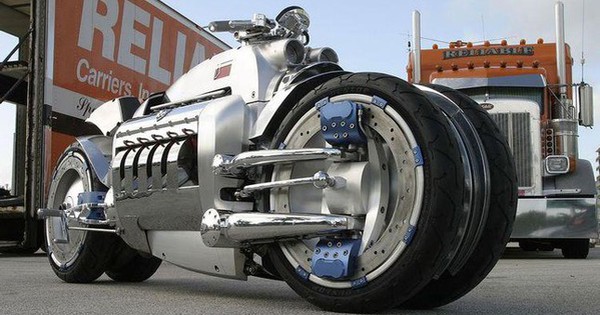“Commodity Superpower”
In early March, when the US and its allies launched a wave of sanctions related to the military campaign of Russia In Ukraine, President Joe Biden said they wanted to deal a “severe blow to President Putin’s war machine”.
However, as the war in Ukraine nears its 100th day, things have not changed much. Russia generates an average of $800 million a day in cash from oil and gas.
For many years, Russia operated as a “massive commodity supermarket”, selling much of what the world needed, not only energy but also wheat, nickel, aluminum and palladium.
Bloomberg notes that Russia is unlikely to be affected by sanctions. Large companies have left Russia, many leaving behind billions of dollars in assets, and the economy is at risk of falling into recession. However, President Putin can withstand these losses because Russia’s coffers are flooded with sales of goods, which are more profitable than ever thanks to soaring global prices, in part due to the conflict in the region. Ukraine.
Even if some countries stop or eliminate energy purchases, Russia’s oil and gas revenue will reach about $285 billion this year, according to estimates by Bloomberg Economics. This will surpass 2021 sales by more than 25%.
EU leaders argue that they should stop buying goods from Russia and indirectly funding the war in Ukraine. However, EU countries also understand that there will be consequences for their own economies if they impose sanctions on Russia.
This week, the EU agreed to an embargo on imports of two-thirds of Russia’s oil, after weeks of wrangling and division.
In the US, officials are discussing how to address financial pressures, possibly by imposing caps on Russian oil prices or imposing sanctions on countries and companies that still trade with Russia. Russian businesses. However, such secondary sanctions would be deeply divisive and risk damaging relations with other countries.
The US has banned Russian oil imports, but Europe is only slowly removing this dependence. This gives Russia time to look to other markets, such as China and India, to limit the damage to export revenue.
That means money is still pouring into Russia, and the financial figures are a reminder to the West that more drastic change is needed. According to the International Energy Agency, revenue from Russia’s oil exports was up 50% from a year earlier. Besides, Russia continues to export wheat at higher prices because sanctions on Russian agriculture are not even discussed because the world needs its grain.
President Putin has also tried to capitalize on Russia’s status as a commodity superpower. Amid worries about food shortages, the Russian leader said he would only allow grain and fertilizer exports if sanctions on his country were lifted.
“If the goal of sanctions is to contain the Russian military, then that is not realistic. It can still fund the war effort, it can still make up for some of the damage that sanctions are doing,” said Janis Kluge, an expert on Eastern Europe and Eurasia at the Institute of International and International Studies. German security in Berlin, said.
How long can Russia withstand sanctions?
One of the big holes in the sanctions against Russia is the willingness of other countries to continue buying oil.
From the end of February to the beginning of May, Indian refiners bought more than 40 million barrels of oil from Moscow. According to Bloomberg calculations, this is 20% more than the amount of oil India receives from Russia for the whole of 2021. Indian refiners are looking for private deals rather than public tenders to buy Russian oil cheaper than market price.
China is also strengthening its energy links with Russia. The country has ramped up imports and is in talks to replenish its strategic crude stockpile with Russian oil.
It is a similar story for steelmakers and coking producers. Imports from Russia increased by a third in April, to more than double the level of 2021. Some Russian oil and coal sellers have tried to facilitate China by allowing trade in yuan. yuan.
“Most of the world is not involved in the imposition of sanctions against Russia. Trade will continue, demand for fuel will remain and buyers in Asia or the Middle East will increase,” said Wouter Jacobs, founder of the Erasmus Commodity & Trade Center at Erasmus University in Rotterdam. .
About 40% of the EU’s gas needs are met by Russia, and this will be the bloc’s hardest link to break. European deliveries even spiked in February and March when gas prices in Europe spiked, making prices from Russian company Gazprom cheaper for most customers with long contracts. term.
Since then, gas demand from Europe has declined due to warmer weather and large flows of liquefied natural gas from the US and other countries. Besides that, there were also disruptions because military activity in Ukraine and Russia stopped supplying gas to Poland, Bulgaria and Finland, which refused to pay in rubles.
Even if the EU reduces its dependence on Russian gas, it will not be easy. Some of Russia’s major gas buyers have been trying to keep buying the key fuel, and companies such as Italy’s Eni SpA and Germany’s Uniper SE expect supplies from Russia to be secure.
However, over time, the pressure on the Russian economy will increase. The country’s energy sector is also facing a host of factors other than demand, from transportation and insurance restrictions to falling domestic demand. Oil production could fall more than 9% this year, while gas output could fall 5.6%.
“The Kremlin has optimism and even thinks that the Russian economy does not collapse in the face of the wave of sanctions. But looking ahead 2-3 years later, it is necessary to question how the energy and manufacturing sectors exist,” said Tatiana Stanovaya, founder of political consulting firm R.Politik./ .
at Blogtuan.info – Source: Soha.vn – Read the original article here



